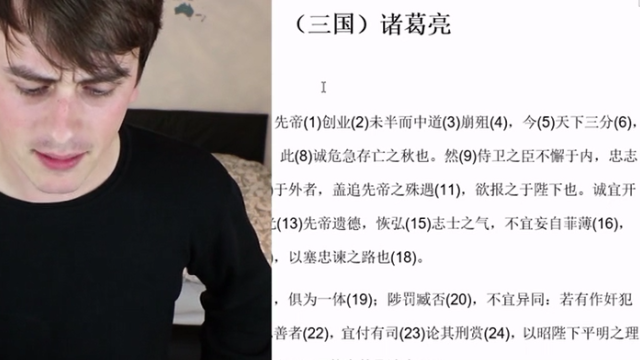怎样写出靠谱的英文(一):怎样把文章写得简洁
William Zinsser是美国著名的作家、编辑、文学评论家,由他主编的《怎样写出靠谱英文》因它给读者写作方面绝妙的建议,以及行云流水般的写书风格而闻名。每个人,只要想写好英文作文,想在这个社会中生存下来,都需要这样的一本书。它不仅能指导我们写作的用语、词汇的运用,还能开阔我们的写作思路,提供更多更全面的论据,充实我们的文章。无论你是想写人物景色、科学技术、体育运动,还是自己的情感经历,这本书都成为你写作道路上的指明灯。
1. Simplicity & Clutter 怎样把文章写简洁?
Zinsser痛恨兜圈子,任何模棱两可的措辞,表意不明的句子在他看来都是灾难。他对简洁如此执着,以至于Zinsser这个名字成了文风简洁的代名词。美国有些老师会让学生Zinsser一下他们的文章,Zinsser成了一个清除文中clutter的动词。
什么是所谓的clutter呢? 放到中文语境里,遍地都是,我们来看看书里是怎么介绍的吧!
Clutter is the disease of American writing. We are a society strangling in unnecessary words, circular constructions, pompous frills and meaningless jargon.
Fighting clutter is like fighting weeds—the writer is always slightly behind. New varieties sprout overnight, and by noon they are part of American speech. Consider what President Nixon’s aide John Dean accomplished in just one day of testimony on television during the Watergate hearings. The next day everyone in America was saying “at this point in time” instead of “now.”
Take the adjective “personal,” as in “a personal friend of mine,” “his personal feeling.” It’s typical of hundreds of words that can be eliminated. The personal friend has come into the language to distinguish him or her from the business friend, thereby debasing both language and friendship. Someone’s feeling is that person’s personal feeling—that’s what “his” means. Friends are friends, the rest is clutter.
Clutter is the ponderous euphemism that turns a slum into a depressed socioeconomic area, garbage collectors into waste disposal personnel and the town dump into the volume reduction unit.
Clutter is the official language used by corporations to hide their mistakes. When General Motors had a plant shutdown, that was a “volume-related production-schedule adjustment.” When an Air Force missile crashed, it “impacted with the ground prematurely.” Companies that go belly-up have “a negative cash-flow position.”
“Experiencing” is one of the worst clutters. Instead of “it is raining”, there is no way to say “At the present time we are experiencing precipitation.” Even your dentist will ask if you are experiencing any pain. If he had his own kid in the chair he would say,” Does it hurt?”
The point of raising these examples is to serve notice that clutter is the enemy. Beware, then, of the long word that’s no better than the short word: “assistance”(help), “numerous” (many), “facilitate” (ease), “individual”(man or woman), “remainder” (rest), “initial” (first), “implement”(do), “sufficient” (enough), “attempt” (try), “referred to as”(called) and hundreds more. Beware of all the slippery new fad words: paradigm and parameter, prioritize and potentialize. They are all weeds that will smother what you write.
How can the rest of us achieve such enviable freedom from clutter? The answer is to clear our heads of clutter. Clear thinking becomes clear writing; one can’t exist without the other. It’s impossible for a muddy thinker to write good English. He may get away with it for a paragraph or two, but soon the reader will be lost, and there’s no sin so grave, for the reader will not easily be lured back.
Is there any way to recognize clutter at a glance? Here’s a device my students at Yale found helpful. I would put brackets around every component in a piece of writing that wasn’t doing useful work. Often just one word got bracketed: the unnecessary preposition appended to a verb (“order up”), or the adverb that carries the same meaning as the verb (“smile happily”), or the adjective that states a known fact (“tall skyscraper”). Often my brackets surrounded the little qualifiers that weaken any sentence they inhabit (“a bit,” “sort of), or phrases like “in a sense,” which don’t mean anything. Sometimes my brackets surrounded an entire sentence—the one that essentially repeats what the previous sentence said, or that says something readers don’t need to know or can figure out for themselves. Most first drafts can be cut by 50 percent without losing any information or losing the authors voice.
My reason for bracketing the students’ superfluous words, instead of crossing them out, was to avoid violating their sacred prose. I wanted to leave the sentence intact for them to analyze. I was saying, “I may be wrong, but I think this can be deleted and the meaning won’t be affected. But you decide. Read the sentence without the bracketed material and see if it works.” In the early weeks of the term I handed back papers that were festooned with brackets. Entire paragraphs were bracketed. But soon the students learned to put mental brackets around their own clutter, and by the end of the term their papers were almost clean.
Today many of those students are professional writers, and they tell me, “I still see your brackets—they’re following me through life.”
You can develop the same eye. Look for the clutter in your writing and prune it ruthlessly. Be grateful for everything you can throw away. Reexamine each sentence you put on paper. Is every word doing new work? Can any thought be expressed with more economy? Is anything pompous or pretentious or faddish? Are you hanging on to something useless just because you think it’s beautiful?
Simplify, simplify.
声明:沪江网高度重视知识产权保护,发现本网站发布的信息包含有侵犯其著作权的链接内容时,请联系我们,我们将做相应处理。
- 相关热点:
- 四六级作文预测











